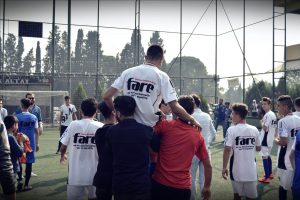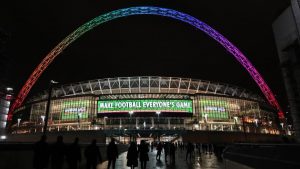FARE Global Grants – Apply until 18.02.2018
As a universal language football provides a methodology of its own to tackle discrimination, promote empowerment and integration; it also has unique issues that act as an echo chamber for social problems that require addressing.
F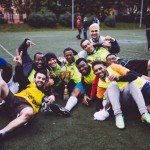 are are making available a pool of 110,000 USD in grants as part of a partnership between Fare and FIFA to address discrimination in football. The grants are funded as part of an agreement with FIFA in the run-up to the 2018 World Cup and will be distributed, monitored, and evaluated by Fare. The grants allow organisations to follow up on incidents and issues of discrimination in domestic and international football by developing debates, mechanisms of change, and build capacity. At the same time, they are available for football for development initiatives to help social inclusion on a community level.
are are making available a pool of 110,000 USD in grants as part of a partnership between Fare and FIFA to address discrimination in football. The grants are funded as part of an agreement with FIFA in the run-up to the 2018 World Cup and will be distributed, monitored, and evaluated by Fare. The grants allow organisations to follow up on incidents and issues of discrimination in domestic and international football by developing debates, mechanisms of change, and build capacity. At the same time, they are available for football for development initiatives to help social inclusion on a community level.
The grants are split into three parts: for playing activities, for sharing information, and to develop expertise and innovation.
The grants are for projects implemented in Africa, the Americas, Asia and Oceania.
Grants are available for:
Playing activities
You can apply for up to USD 1,000 to fund projects that involve playing activities alongside educational activities. We require a minimum of 10 playing sessions and a minimum of 200 participants as direct beneficiaries. We also require public impact through pre-publicity and media work.
The project can be organised as weekly sessions or a significant one-off tournament at a regional or national level.
Sharing information
If you wish to plan a Conference, commission some Research, produce Education materials, or publish a Good Practice guide you may apply for upto USD 2,500. You will be required to have a clear target audience and a circulation strategy for your work. A launch event is mandatory.
We will cover 75% of the total costs, you will need to find 25% through other sources when applying for this grant.
Developing expertise and innovation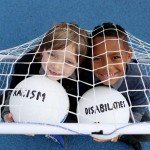
If you have an idea that uses clear tools – such as advocacy, community empowerment, leadership development, education, or the intersection of art and sport – to impact change and achieve the two objectives of this funding call, we want to hear from you. You may also have an organisational development issue you wish to implement.
The expertise and innovation fund requires that you present a work programme with a full overview of what you propose to do and how, including the time-frame, a budget and impact projection. Be creative but be focused in what you intend to achieve.
Grants of up to 5,000 USD are available for this category. All partners will be required to cover 25% of the overall costs through other funding sources.
Target groups
Women and minority groups (LGBT, ethnic minorities, indigenous peoples, the disabled, refugees and migrants)
The general public and football fans
Players, referees, clubs and football administrators
Children, young people and educators
To apply for one of the three grants you should read the criteria below and fill in the application form.
If you have questions you can send us an email or write to us on WhatsApp 0044 7956079314.
Examples
Below are some examples of projects that demonstrate the type of projects that would fall under the three categories the Global Grants will fund.
Examples of projects that can be supported as playing activities:
La Nuestra Fútbol Femenino ‘Mi juego, nuestra revolución’ festival (Argentina) – a four-day festival, which included football sessions, workshops on issues of gender equality and self-defence techniques, friendly matches, a film screening and other social gatherings.
Fundacja dal Wolnośc Etnoliga (Poland) – four-month long all-inclusive football league bringing together 250 players from over 50 nationalities living in Warsaw – migrants, refugees and Polish people – with the values of inclusion, diversity and cultural exchange at its heart.
Social Cohesion Games (South Africa) – a football tournament involving 768 players from across Africa in 64 teams and also featuring former and current players to stop xenophobic violence.
Examples of projects that can be supported as sharing information:
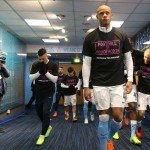 PlayOnside capacity building programme (Thailand) – a two-day workshop for 17 coaches with an insight on football’s role for social development, empowerment and social inclusion, which culminated in the trainers putting into practice the learning outcomes.
PlayOnside capacity building programme (Thailand) – a two-day workshop for 17 coaches with an insight on football’s role for social development, empowerment and social inclusion, which culminated in the trainers putting into practice the learning outcomes.
Sport Peoples Think Tank ‘Ethnic Minority Coaches in English football’ research (England) – a five-year research into the underrepresentation of ethnic minorities in coaching roles in English football with the outcomes published annually.
Discover Football ‘Female coaching zone’ manual (Germany) – a new manual from female perspectives, experiences and exercises to influence the development of girls and women’s football. Including ideas on how to deal with challenges such as coaching, lack of financial support, not having enough players or dealing with conflicts.
Examples of projects that can be supported as part of the expertise and innovation fund:
‘Michael Essien, I want to play as you’ (England) – a play exploring the issues facing African men migrating to Europe explored through their dream to play football.
Pride in Sport index (Australia) – an initiative by Australian sport to create an index that evaluates the efforts of sports bodies to include LGBTI people within their organisations.
‘The Beautiful Game’ documentary (US/South Africa) – awareness-raising documentary of ‘corrective rape’, physical abuse, poverty and HIV-related deaths in South Africa and highlighting how football can impact on the lives of women enduring these situations.
Guidance to applicants
This document gives general guidance to applicants as to whether or not their particular project/activity would be eligible for funding. It also indicates all requirements and processes projects should follow.
a) Award Criteria
Meeting the grants criteria does not automatically lead to the award of a grant. All applications will be assessed against the following criteria
The need for the idea/ activity
How they address the issue effectively
Who is the target audience?
- Impact of the project and the expected results
- Level of sustainability and transferability
- Partnerships and stakeholder involvement
- A clear publicity strategy
How the project is innovative
b) Funding principles
Grant funding benefits causes or groups which otherwise would struggle to obtain the support they need. Fare can only fund activity intended to further the purposes of social development, anti-discrimination and empowerment through football.
Successful grants must seek to:
- Target root causes of problems
- Target people and geographical areas affected
- Include plans for sustainability
- Have secured co-funding (mandatory for applications for USD 2,500 and USD 5,000 grants)
Strive to collaborate with like-minded organisations
c) Reasons for rejecting grant applications
- Grant requested disproportionately high in relation to the size of the organisation and/ or proposed activity
- Concerns about the organisation’s financial or overall capacity to implement and run the project
- Insufficient information
- Insufficient impact
d) Eligible organisations
Only legally registered organisations can apply. We will give priority to not-for-profit and community-based groups.
Please note: the Fare Global Grants are to support projects outside of Europe. European organisations can apply for a grant in partnership with organisations in Africa, the Americas, Asia and Oceania and only if the grant is used in the country of origin of the partner organisation.
e) How much can we offer?
Fare offers grants of up to USD 1,000, USD 2500 and USD 5,000.
For grants of USD 2,500 and USD 5,000 applicants must cover at least 25% of the overall costs through other sources, the Fare grants will not exceed 75% of the total proposed.
All Fare Global Grants will be paid in two tranches: 50% paid before implementation and 50% after delivery upon reception of a final report and evidence.
All grant recipients will have to sign an agreement with Fare.
f) Monitoring process
After the completion of the project, grant recipients must submit a written and financial report. The written report should contain supporting evidence of the activities/project, including high-resolution photographs and short videos, press clippings, articles on websites, links on social media and receipts.
g) Publicity and visibility
A detailed media plan should be included on the application form.
Grant recipients are required to use the Fare logo on all printed and digital material in connection with the project once it has been approved.
Application process
The Fare Global Grants will run from 01 April 2018 to 31 August 2018. The application process will be open from 27 December 2017 to 18 February 2018. Applicants will be informed on whether they have been successful or not by 5 March 2018.
The application form can be filled in here: http://www.emailmeform.com/builder/form/TbiJKl6f0e51h
Your form can be saved up to three days should you wish to complete it in stages or review it later.
A link will be given to you to access the report and complete/ review it later.
If you wish to discuss an application or have any questions about applying for funding you can contact info@farenet.org or call us on 0044 207253 6795. You can text us by WhatsApp through this number: 0044 7956079314.
For further help in filling out the application please read the Fare Grant application guidelines.


